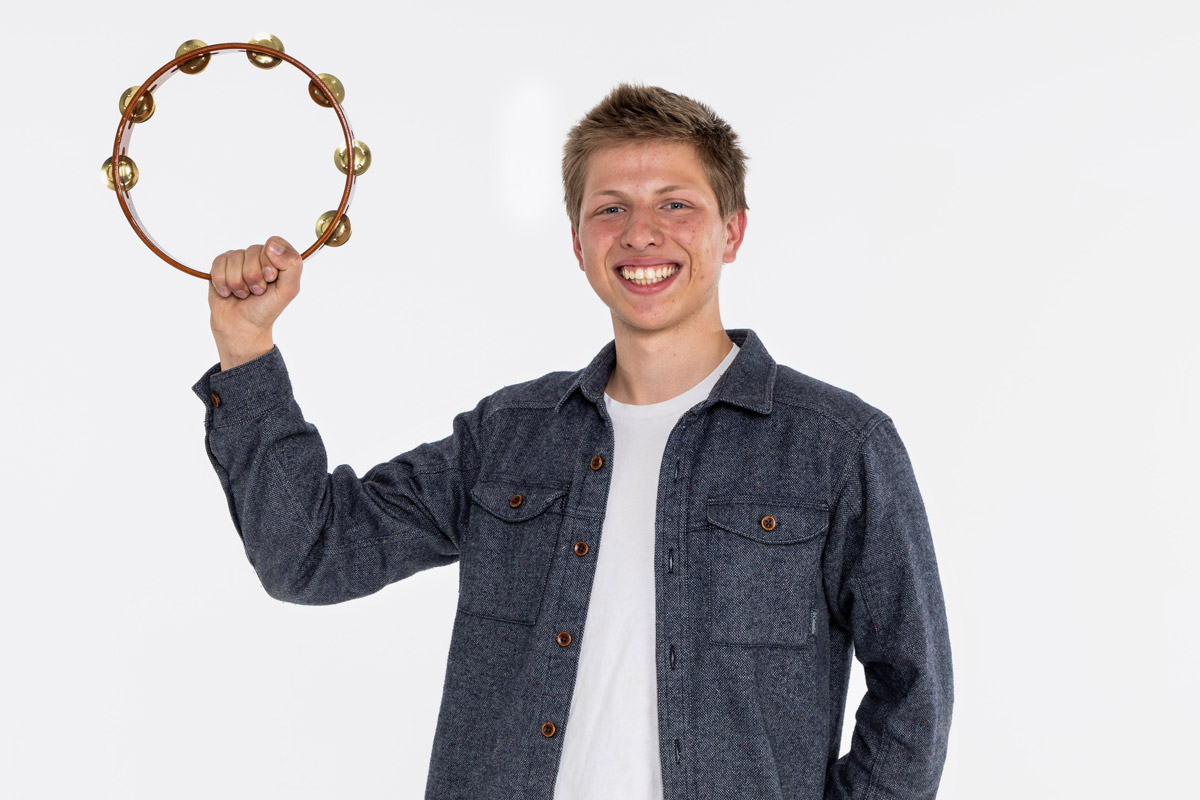Smoke Gets In Your Eyes
Meet ES-chemistry major Andrey Marsavin ’21
Major: environmental studies–chemistry
Hometown: Los Angeles, California, and Moscow, Russia
Thesis adviser: Prof. Julie Fry [chemistry]
Thesis: “Oxidized Nitrogen in Wildfire Smoke at Mt. Bachelor Observatory”
What it’s about: Wildfires emit various air pollutants like particulate matter, volatile organic compounds (VOCs), and nitrogen oxides (NOx). Ozone—another key air pollutant—can also be produced from fires when VOCs and NOx react in smoke. During the 2020 wildfire season, we measured NOx and ozone at Mt. Bachelor Observatory, an atmospheric research station in central Oregon. For the second part of my thesis, I made modifications to our NOx instrument so that the sum of all oxidized nitrogen compounds (NOy) can be measured. NOy includes compounds like nitric acid and organic nitrates, which can postpone ozone production by temporarily storing NOx molecules. We deployed the new NOy instrument at Mt. Bachelor this spring to sample smoke from upcoming wildfire seasons.
What it’s really about: Looking closely at how wildfires impact air quality, and doing so from one of the coolest places imaginable.
In high school: I played in a band and took kung fu lessons. I was getting into hiking and that motivated me to go to college for environmental studies.
Influential class: Water and the American West with Prof. Josh Howe [history] gave me an entirely new outlook on living in the western United States. It was also my first time discussing the idea of environmentalism in an academic context.
Influential book: Encounters with the Archdruid by John McPhee.
Concept that blew my mind: The fight for the Doyle Owl.
Cool stuff I got to do: My first year, I started going on trips with the Reed Outing Club and as a sophomore joined the club’s leadership team. We led numerous hiking and backpacking trips in the Pacific Northwest, going to places like Olympic National Park, Mt. St. Helens, Owyhee Canyonlands, and the North Cascades. I was also a TA in organic chemistry, earned my Wilderness First Responder certification, and learned how to operate an atmospheric chamber.
Ability developed at Reed: I learned how to thrive in a research environment, especially when the work is collaborative.
Help I got along the way: Prof. Fry selflessly supported my growth as a student and researcher. I also received a ton of support from the registrar’s office, where I was a student worker—thank you for keeping me employed even when the pandemic took over! I received an Initiative Grant to fund my thesis work at Mt. Bachelor Observatory and an Alfred W. Weitkamp Fellowship for summer research with Reed’s chemistry department.
How Reed changed me: Being at Reed meant being surrounded by people who were great at things I wanted to be great at. This can be intimidating but also very conducive to personal growth. The classes I took have shaped the way I think and have helped me home in on what kinds of things I’d like to pursue after Reed.
What’s next: Graduate school at Colorado State University’s atmospheric science department.
